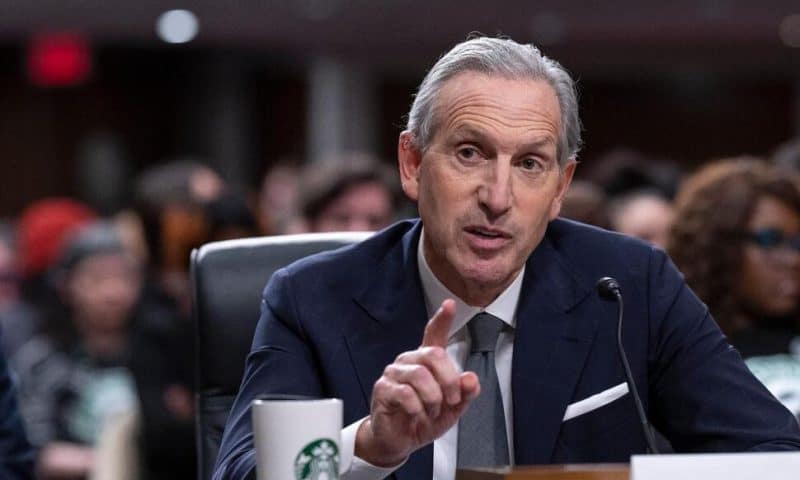Former Starbucks CEO Howard Schultz says the company’s leaders should spend more time in stores and focus on coffee drinks as they work to turn around flagging sales
Former Starbucks CEO Howard Schultz says the company’s leaders should spend more time in stores and focus on coffee drinks as they work to turn around flagging sales.
In a LinkedIn post published over the weekend, Schultz said many people had reached out to him after Starbucks reported weaker-than-expected quarterly sales and earnings last week.
The Seattle coffee giant said revenue dropped 2% in the January-March period as store traffic slowed around the world. It was the first time since 2020 that the company saw a drop in quarterly revenue. Starbucks also lowered its sales and earnings guidance for its full fiscal year.
Schultz, who bought Starbucks in 1987, is credited with growing the company into the global behemoth it has become with nearly 39,000 stores worldwide. He has been the chairman emeritus of the company since last fall, when he stepped down from Starbucks’ board.
Schultz remains Starbucks’ largest individual shareholder, holding shares that were valued at $1.5 billion at the end of last year.
In his post, Schultz said senior leaders – including board members – need to spend more time talking to baristas in the company’s stores.
“I have emphasized that the company’s fix needs to begin at home: U.S. operations are the primary reason for the company’s fall from grace,” he said. “The stores require a maniacal focus on the customer experience, through the eyes of a merchant. The answer does not lie in data, but in the stores.”
Laxman Narasimhan, who became Starbucks’ CEO last spring, has been working a half-day shift in Starbucks stores once a month.
At some points in his post, Schultz seemed to be questioning Narasimhan’s turnaround plans. In a conference call with investors last week, Narasimhan mentioned several new products he thinks will drive customers to stores later this year, including boba drinks, sugar-free options and the brand’s first energy beverage.
But Schultz said coffee is what differentiates Starbucks and reinforce the company’s premium positioning.
“The go-to-market strategy needs to be overhauled and elevated with coffee-forward innovation,” he said.
Narasimhan did announce plans for coffee pop-up stores in the U.S. and elsewhere last month. Starbucks plans to use the stores to experiment with limited-edition coffee drinks, teach younger customers about coffee and learn about customers’ preferences.
Schultz also said the company should update its mobile ordering and payment platform to “once again make it the uplifting experience it was designed to be.” He didn’t specify the changes he thinks should be made. Narasimhan said last fall that Starbucks is accelerating the introduction of new digital features and trying to personalize the customer experience within its app.
“We always appreciate Howard’s perspective. The challenges and opportunities he highlights are the ones we are focused on. And like Howard, we are confident in Starbucks long-term success,” Starbucks said Monday in a statement.
Schultz has a history of stepping in when he see Starbucks struggling. He retired as CEO in 2000 and became the company’s chairman, then returned as CEO in 2008 when the company was dealing with the recession.
Schultz stepped down again in 2017 but returned to lead the company on a temporary basis in 2022. In 2023, he named Narasimhan, a former PepsiCo executive, as CEO. Schultz left Starbucks’ board last fall and became chairman emeritus.
Starbucks shares were flat Monday. The company’s stock price has fallen more than 20% since the start of this year.

